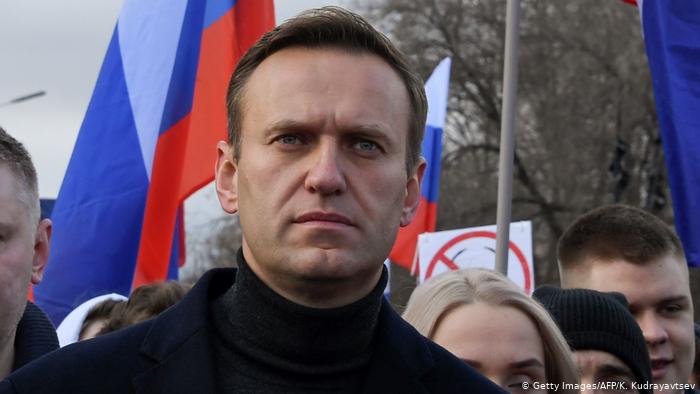Alexei Navalny
26 August 2020
Russia’s most prominent opposition leader and anti-corruption campaigner, Alexei Navalny, was taken ill after he drank tea at the Tomsk airport on a flight from Siberia to Moscow. During the flight he became seriously ill and the fight was diverted to Omsk where he was treated for three days. After that he was transferred to the Charité hospital in Berlin. Cinema for Peace Foundation organized Navalny’s medical evacuation to Germany. The Charité Hospital in Berlin said in its Monday statement that Navalny is being treated with the antidote atropine. He is breathing through a ventilator. Although he is still in coma, he is said to be in stable condition. Accompanied by one of her husband’s aides, Navalny’s wife Yulia visited the German hospital and is still there.
Sergei Guriev, a Russian economist and friend of Navalny, told DW that while it was not known who was behind the attack on Navalny’s life, it was evident the Kremlin was responsible for doing nothing against people who sought to hurt the politician. It is possible that the government didn’t want him to be on air in the coming weeks until this coming election.
Several Western countries have called for a full and transparent investigations. Both the Russian doctors and the German doctors have not yet named the poison.
Navalny started the Anti-Corruption Foundation in 2011 and campaigned against powerful people such as former Prosecutor General Yuri Chaika and former Prime Minister Dmitry Medvedev. In doing so, he earned many enemies. He was arrested several times since 2014. His brother was also convicted and imprisoned. He started a YouTube channel, which has more than 4 million subscribers. Navalny campaigned against constitutional amendments that will allow President Putin to remain in power until 2036. But the amendments were passed last month.
There were other Putin critics who have been targeted and not just with poison. Politician Boris Nemtsov and journalist Anna Politkovskaya, who were critical of Putin were both shot dead. Intelligence officer Alexander Litvinenko died after his tea was poisoned in the UK by radioactive polonium-210 in 2006. Journalist and opposition activist Vladimir Kara-Murza is still alive, but has alleged he was poisoned twice by Russian security services. He nearly died after suffering kidney failure in 2015 and went into a coma two years later. Another Kremlin critic, Pyotr Verzilov, accused Russia’s intelligence services of poisoning him in 2018. As a result of this poisoning he lost his sight and ability to speak. The same year, former Russian double agent Sergei Skripal and his daughter were poisoned with the Novichok nerve agent in the British city of Salisbury.
BBC and DW reported.














